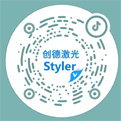Choosing the appropriate welding machine based on different battery products, connector materials, and thicknesses is crucial to ensure the quality and performance of the battery. The following are recommendations for different situations and the advantages and disadvantages of various types of welding machines:
1. Transistor welding machine:
The transistor soldering machine is suitable for connecting materials with good conductivity, such as nickel sheets, copper sheets, etc. This machine heats the welding rod and connecting piece to a certain temperature through resistance heating, and then applies a certain pressure to weld them together.
Advantages: Suitable for materials with good conductivity, such as copper, nickel, etc. High welding stability, suitable for mass production.
Disadvantage: Not suitable for materials with poor conductivity, such as aluminum. It may cause some thermal impact on the connecting piece.
2. High frequency machine:
High frequency machines use high-frequency currents to generate resistance heating between connecting pieces, suitable for materials with poor conductivity, such as hardware. High frequency machine has fast welding speed and relatively small thermal impact.
Advantages: Suitable for materials with poor conductivity. Long discharge time
Disadvantage: Not applicable to all materials, welding parameters may need to be adjusted to achieve optimal results.
3. Laser welding machine:
Laser welding machines use high-energy laser beams to generate instantaneous high temperatures on the connecting pieces, melt them, and connect them together. Laser welding is suitable for various materials, including different types of metal connectors.
Advantages: Suitable for various materials, including materials with poor conductivity such as aluminum. High welding accuracy, minimal thermal impact, and the ability to achieve micro welding.
Disadvantage: The equipment cost is relatively high. High requirements for operators, suitable for fine welding.
According to different situations, it is recommended to use different types of welding machines:
Materials with good conductivity (such as nickel and copper): A transistor soldering machine can be selected to ensure soldering stability and meet the requirements of mass production.
Hardware: High frequency machine, fast welding speed.
It should be noted that in addition to the conductivity of the material, the thickness of the connecting piece should also be considered. For example, when welding lithium batteries and nickel sheets, it is highly recommended to use our transistor welding machine - PDC10000A. It has a wide welding range, fast discharge time, welding time can reach microsecond level, higher accuracy, less damage to the battery, and the defect rate can be controlled at 0.03%.
In addition, the skills and experience of the operators also have a significant impact on the welding results. By selecting machines reasonably, optimizing welding parameters, and ensuring operational standards, high-quality battery connections can be achieved, ensuring the performance and reliability of battery components.
In short, the type of welding machine we choose is influenced by the welding product, the material and thickness of the connecting piece, and the technical requirements for welding.
WeStyler CompanyWe have been working in this industry for many years and have our own R&D team. Our welding equipment includes transistor welding machines, high-frequency inverter AC machines, and laser welding machines. We warmly welcome your inquiries and will recommend a suitable machine according to your requirements!

Dongguan Chuangde Laser Intelligent Technology Co., Ltd
One stop laser welding solution service provider










